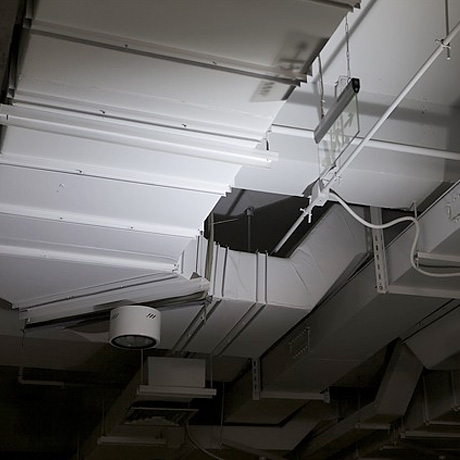
Countless peer reviewed studies have demonstrated the correlation between hot workplaces and poor productivity. Cooling technology addresses this situation, but which type is most suited for an active business? Two primary air conditioning formats come to the rescue when the thermometer rises. These are the following:
It's important to know the drawbacks and highlights of both types before making a recommendation. For example, if employees are working in a quiet environment, central air is the obvious winner. A window unit produces noise. Central air systems, on the other hand, are manufactured with the express intent of splitting the operating components. The noisy compressor is thus located outdoors. Ductwork spreads outward from the central cabinet and delivers cool air to each room through a series of vents.
A window air conditioner cools faster than its larger relative. It's cheaper to purchase and can be removed when seasonal heat departs at the end of the year. They also cool faster, a popular feature for rooms that experience heat fluctuations as caused by equipment or machinery. Additionally, an energy audit can quickly locate any loss points on the box-like window unit, whereas there are hidden energy wastage points on the central system. If you have this long and branching network of ducts, heat loss is just something that has to be accepted.
Again, it's tough to make the choice between the two types without knowing the layout of the business. One thing can be said with authority, a wedged window air conditioner is better suited for single room applications. It blocks windows and reduces light, something a professional environment may find distressing.
If the office or workshop is composed of one or two rooms and aesthetics isn't an issue, go with the casement model. Otherwise, opt for a central system. A central air conditioner brings convenience and whole structure cooling to the operation. Imagine the CEO of the company having access to a thermostat, one that controls a personal cooling zone. Other zones would be configured in this central system to cool office equipment or workshop machinery. Meanwhile, a cool 19°C filters into the work areas where employees are doing all of those important productive tasks.
In conclusion, these are all valid reasons to weigh casement and central cooling appliances, but the configuration of the business should always act as the deciding factor. And here's one last note of concern. Security is a factor that can't be ignored in any business setting. Opt for central conditioning if you don't want open windows with untidy boxes that can be kicked aside by intruders.
Phone: 1300 672 235
Operating Hour:
9:00am to 5:30pm (Mon-Fri)
Service areas - Suburbs
Email: subcool@bigpond.net.au
Optimized by NetwizardSEO.com.au